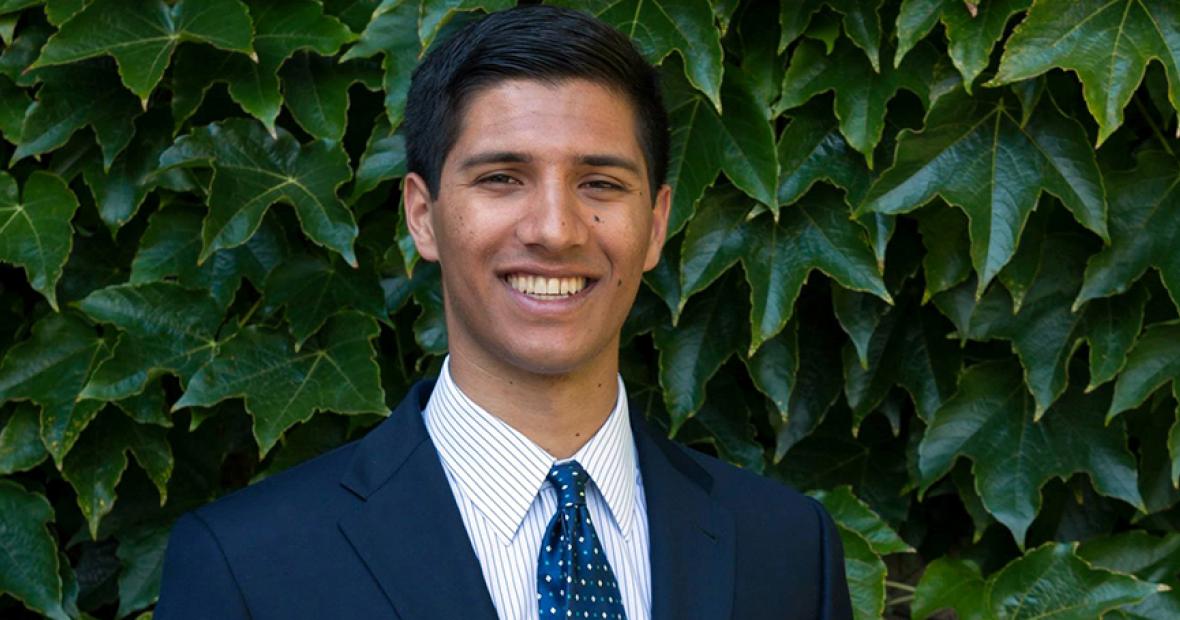The Grinnell Connection
Grinnell was such a big part of my life that I don’t want my connection with the school to end
●
Sep 28, 2016
●
Luke Saunders ’12
“Grinnell was such a big part of my life that I don’t want my connection with the school to end,” says Ishan Bhadkamkar ’13. Today, Bhadkamkar remains connected to the College through his work as a volunteer — one of the class of 2013’s class fund directors — and through his giving. The economics major has directed his contributions to the new Humanities and Social Studies Complex, merit-based aid, and the economics department.
The Department of Economics is based in Alumni Recitation Hall (ARH), which was designed with early 20th-century pedagogy in mind. Pedagogy, not to mention economics and technology, has advanced considerably since then. That’s why ARH and Carnegie Hall are being transformed to become part of the new Humanities and Social Studies Complex.
“I always compare ARH to the Noyce Science Center, and I always thought what was great about Noyce was that there would be common spaces for students to meet,” says Bhadkamkar, who had several economics classes in Noyce.
These common areas are a crucial aspect of the new complex’s design, which will also provide more flexible classroom options.
“Having the right space makes a big difference for your learning experience,” says Bhadkamkar. “It allows people to be more engaged and more connected, and I think [that’s important] especially in a liberal arts setting where classes are smaller and you’re trying to get more people to be engaged.”
Bhadkamkar was fortunate enough at Grinnell to receive merit-based aid, which freed him up to pursue passions and hobbies such as tennis and improv. He played varsity tennis all four years, and the tennis team won the Midwest Conference championship each of those years. Bhadkamkar also interned with the College’s investment office — an opportunity that helped him get his current position with Hall Capital Partners in San Francisco. He has chosen to give back to merit aid to allow other students similar opportunities.
Bhadkamkar has a number of funding priorities, and even though he wishes he could give more, he acknowledges the significance of every gift. “The main thing I try to remember is that just because I don’t have a million dollars doesn’t mean I can’t make a meaningful contribution,” he says. “In some ways I think that it’s not the dollar amount that matters, it’s the gesture of support.”

